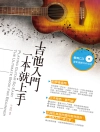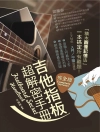Preludio contains 130 easy attractive performance pieces from six centuries, thus offering the most important pieces for beginners‘ guitar lessons in one comprehensive volume. The repertoire is ideal for first performances at music schools, as pieces for competitions and examinations or just as a ‚treasure trove‘ for teachers, pupils, students, and guitar lovers.
The selected pieces can be played in the second to fourth year of guitar lessons. They are divided chronologically into five chapters and arranged progressively according to their level of difficulty. Each chapter refers to another epoch: Renaissance – Baroque – Classical period – Romanticism and early 20th century – modern, pop and world music. The result is a tune book which can already be used during or immediately after studying any guitar method.
Most pieces can be played in the 1st and 2nd positions, without requiring any barré fingering or ties and slurs. The somewhat more difficult pieces that require small and large barré fingering as well as position playing are placed at the end of each chapter.
The majority of the pieces are original works, and the editors have refrained from making any radical simplifications. Only a few difficult passages have alternatively been made easier to play such that the level of difficulty within a piece does not vary too much.
Inhaltsverzeichnis
Renaissance: E. Adrianssen: Canson Englesa – Anonym (17. Jhd.): What if a Day or a Month or a Year – J. Dowland: Mr. Dowland´s Midnight – C. Negri: Bianco fiore – F. Caroso: Chiara Stella – C. Negri: Canario – Anonym (16 .Jhd.): A Scots Tune – J. Dowland: Orlando sleepeth – G.L. Fuhrmann: Subplement – Anonym (17. Jhd.): A Toye – P. Attaignant: Tourdion – G. Morlaye: Bransle – Anonym (16 .Jhd.): Greensleeves – R. Allison: Almain – H. Neusiedler: Welscher Tantz (Huppf Auff) – J.H. Kapsberger: Canario – Anonym (16. Jhd.): Kemp´s Jig – T. Robinson: Robinson´s May – A. Le Roy: Passemezze – Anonym (16. Jhd.): Packington´s Pound – Barock: C. Calvi: Canario – G. Sanz: Españoletas – G.F. Händel: Passepied – G. Zamboni: Gavotta – G. Sanz: Canciones – C. Calvi: Sua Ciaccona – L. de Ribayaz: Torneo – G. Zamboni: Sarabanda – G.F. Händel: Prelude – J.S. Bach: Gavotte – J.A. Logy: Gigue – A. Brescianello: Gavotte – E.G. Baron: Trio – J.S. Bach: Gavotte – D. Kellner: Passepied – L. de Ribayaz: Canario – G. Sanz: Villanos – C. Petzold: Menuet – D. Kellner: Aria – J.S. Bach: Bourrée – Klassik: D. Aguado: Valse – A. Diabelli: Moderato – F. Sor: Leçon No. 8 – F. de Fossa: Leçon No. 51 – M. Giuliani: Ecosaisse No. 10 – A. Diabelli: Allegretto – F. de Fossa: Leçon No. 59 – M. Carcassi: Andantino – D. Aguado: Estudio – M. Giuliani: Ecosaisse No. 2 – F. Carulli: Waltz – A. Diabelli: Vivace – F. Carulli: Andantino – M. Giuliani: Andantino – F. Carulli: Prelude – A. Diabelli: Moderato – M. Giuliani: Allegro – N. Paganini: Ghirribizzi No. 13 – A. Diabelli: Andante – F. Sor: Leçon No. 2 – M. Carcassi: Sauteuse – M. Giuliani: Allegretto – F. Sor: Exercise No. 2 – W.A. Mozart: Andante grazioso – M. Carcassi: Rondo – F. Carulli: Valse – F. Carulli: Andante in La minore – F. Molino: Rondo – W.A. Mozart: Allegro – D. Aguado: Ejercicio No. 12 – N. Paganini: Ghirribizzi No. 12 – D. Aguado: Ejercicio No. 3 – M. Carcassi: Pastorale – F. de Fossa: Leçon No. 127 – J. Haydn: Chant national autrichien – Romantik: N. Coste: Exercise No. 16 – J.K. Mertz:
Übungsstück / Exercise No. 5 – J.S. Sagreras: Lección No. 79 – N. Coste: Leçon No. 3 – J.K. Mertz: Übungsstück / Exercise No. 11 – J.S. Sagreras: Lección No. 75 – J. Ferrer: Allegro moderato – F. Tárrega: Preludio – A. Cano: Vals – J.S. Sagreras: Lección No. 65 – J.K. Mertz: Übungsstück / Exercise No. 2 – F. Tárrega: Estudio – J. Ferrer: Vals – J.K. Mertz: Übungsstück / Exercise No. 3 – J. Bosch: Gitanilla – P.A. Iparraguirre: Camelia – Anonym (19. Jhd.): Romanza d´Espagna – F. Cimadevilla: Vals – F. Tárrega: Lágrima – A. Barrios Mangoré: Minueto – Moderne/Pop/Weltmusik: Traditional / Griechenland: Lied vom Festland / Song from the mainland – Traditional / USA: Old Joe Clark – R. Smith-Brindle: Con moto – Traditiona / Schottland: Highland Laddie – Traditional / Spanien: El vito – Traditional / USA: Shove the Pig´s Foot – Traditional / Griechenland: Song from Karpathos – Traditional / Spanien: Malagueña – Traditional / Schottland: Gary Owen – B. Gröger: Sweet Consolation – Traditional / Schottland: Nan Clark´s Jig – O. de Chamisso: Undine – J.M. Borner: Warming up – B. Szordikowski: A View to the Aran Islands – B. Gröger: Playing waves – Traditional / USA: Happy Birthday – L. Méneret: L´oasis – L. Searle: If I Should Give You My Love – T. O´Carolan: Planxty George Brabazon – T. Ratzkowski: Studie / Study – Traditional / Amerika: We shall overcome – B. Gröger: Sparklers – D. Kreidler: Happy – Traditional / Südamerika: Un poquito cantas – Traditional / England: Oh when the saints – B. Steinmann: El vestido azul – L. Searle: Step down – G. Graf-Martinez: Rumbita – Traditional / Schottland: Auld Lang Syne – T. O´Carolan: Blind Mary – D. Kreidler: Little Rag Blues – R. Smith-Brindle: Berceuse – S. Rak: Allegro vivo – S. Bormann: Broken Clouds – O. de Chamisso: Dalva
Über den Autor
Concert guitarist and guitar teacher Martin Hegel (Berlin) completed his studies at music colleges in Cologne, Vienna, Berlin and Salzburg. He has won prizes at more than ten international competitions – and concert tours have taken him to many countries including Italy, Spain, France and Japan. Numerous radio and CD recordings also document his artistic career.
Martin Hegel teaches at various Berlin music schools and has worked on guitar teaching methods for many years. As an editor and arranger he has published guitar music from the Renaissance to the present day, particularly designed for tuition purposes and concert performance.











